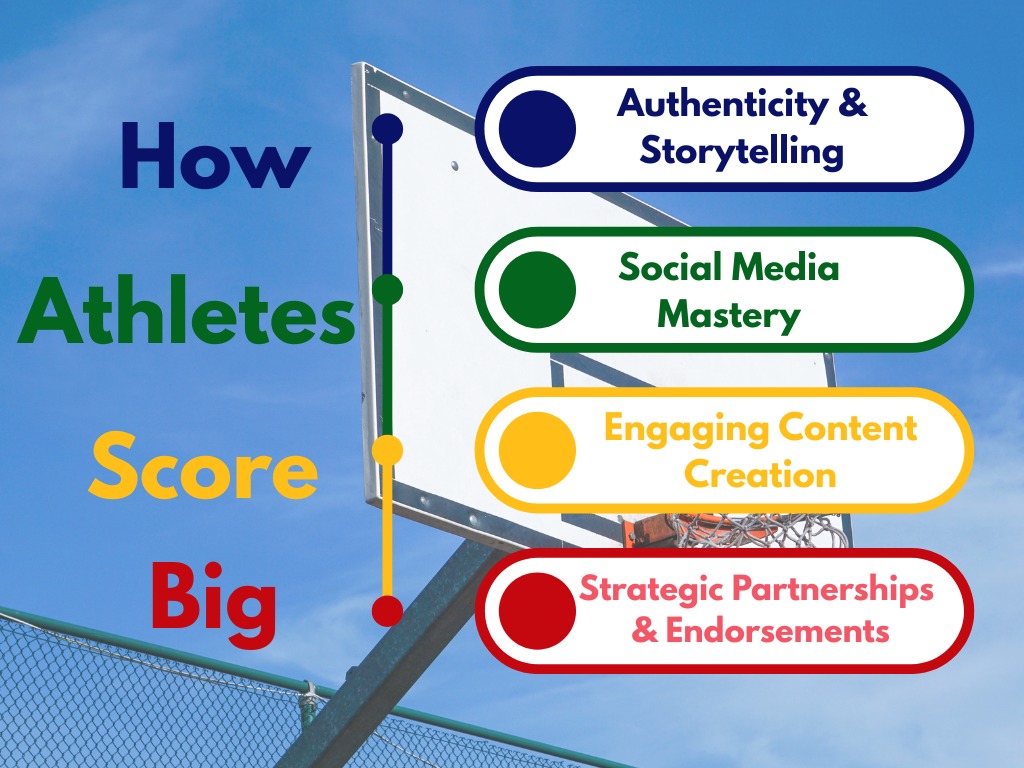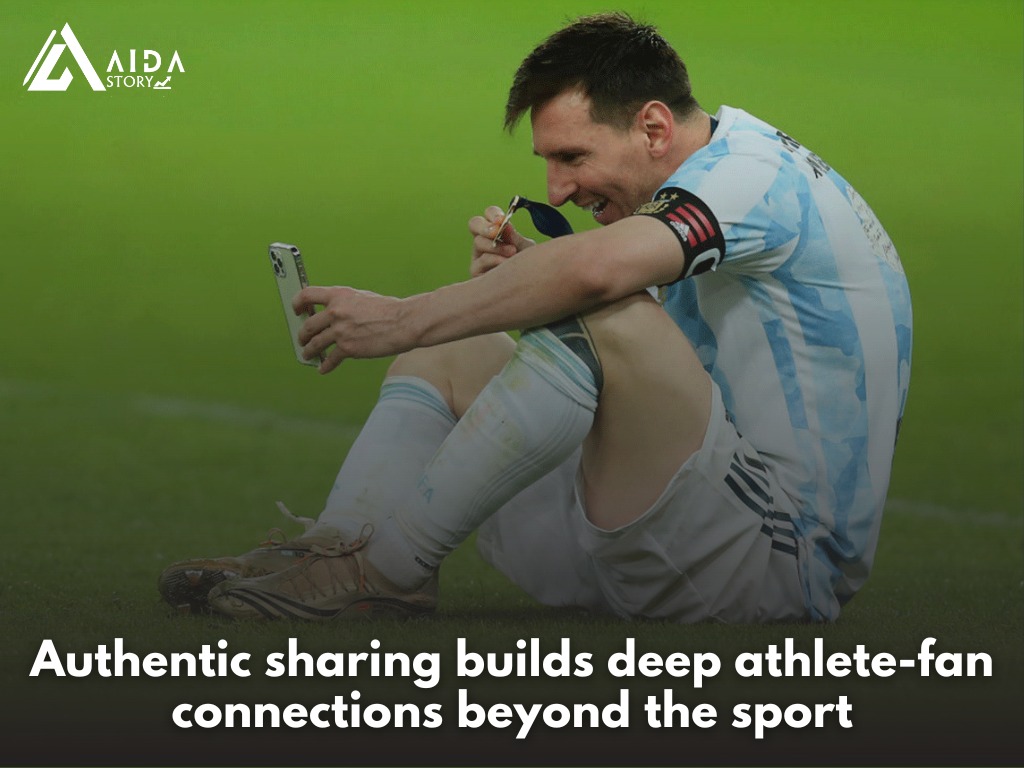In today’s sports world, the concept of sports personal branding has become crucial for athletes aiming to deepen their fan connections and build long-term professional opportunities. Today’s athletes are not limited to what they do in sports alone. Strong personal brands powerfully shape the future of their careers. Understanding how athletes build personal brands is essential for maximising their influence both on and off the field.
According to the study shared on ResearchGate, having an effective brand helps athletes gain more attention, be more valuable to companies, and keep their fans. The article explores different techniques that athletes use to build their brands. If you want to know more, visit Aida Story.
How Athletes Build Personal Brands
Using Social Media to Have Real Connections
Social media remains central to modern sports personal branding. Many athletes post on Instagram, Twitter, and TikTok to share their lives apart from their achievements as athletes. Showing fans your personal views, what goes on behind the camera, and a regular day builds trust and connects the musician to fans.
The Role of Storytelling in Shaping a Brand
Many athletes personal branding strategies centre around telling personal life stories. Watching an athlete grow through wins and losses often captures the viewers’ attention and encourages them. By using stories, athletes connect with their fans in a meaningful way.
For instance, stories of hardship and accomplishing ambitions are deeply felt, as is clear from the examples provided by Aida Story.
Strategic Collaborations and Endorsements
Another critical aspect of how athletes build personal brands involves strategic partnerships. When athletes team up with merchants or causes they believe in, it boosts their respect and popularity in the public eye. This form of collaboration helps each brand reach more people and get mutual recognition.
Athlete Personal Branding Strategies

Consistent Brand Messaging
Consistency is fundamental in athlete’s personal branding strategies. Any athlete should know what they stand for, how they present themselves, and the key ideas they are trying to share with others. As a result, fans recognise and trust the genuine and organised personal brand that an artist builds.
Active Fan Engagement
Interacting with their fans greatly helps an athlete build their brand. Having Q&A sessions and live streams and responding to fans personally help create a positive relationship between the athlete and the fans. As a result, people who are just fans might move up and support the team more deeply.
Personal Branding Through Philanthropy
Many athletes help make their name better known by getting involved with charities and giving to good causes. Engaging in philanthropy lets athletes help people in good causes, which helps them look better in the eyes of fans and lets them make a bigger difference outside of sports. This strategy really connects with people, allowing the brand to become even more well-known.
Commercial Aspects of Sports Personal Branding
Strong personal branding has big commercial implications since it can make a big difference in someone’s business success. Brands like it when athletes maintain a good and honest image, which makes it more likely for them to get big contracts and sponsorships. As noted in research by ResearchGate, athletes who have successfully built their brands are able to make more money and have better chances of staying in the spotlight later on in their careers.

Maximising Impact Through Sports Personal Branding
The future of sports personal branding lies in authenticity, consistent engagement, and strategic storytelling. By using social media well, sticking to the same key messages, and connecting with fans, athletes can really help themselves build their brand. For athletes who want to improve their branding, checking out the guides and advice on Aida Story can really help them learn more about what works best.
FAQs
1. What is sports personal branding?
Sports personal branding is how athletes shape their public image and reputation to connect with fans, build loyalty, and increase their commercial value.
2. How do athletes develop a strong reputation for themselves?
Athletes can build a strong image by being active on social media, messaging consistently, telling their story, forming collaborations, and getting involved in charity.
3. What benefits come from strong personal branding for athletes?
Building a personal brand helps athletes attract more attention, fan support, and business offers, which allows them to have a long and profitable career.
4. What role does social media play in sports personal branding?
Using social media, athletes can truly interact with their following, express personal details, and build their name to a broader audience.
5. Does giving to good causes improve an athlete’s reputation with the public?
Participating in philanthropy can undoubtedly help an athlete’s image by linking their name to good things and making the audience more supportive.



